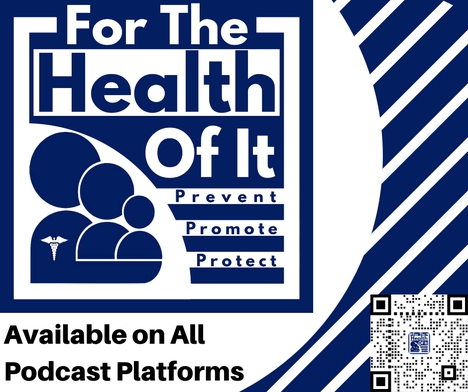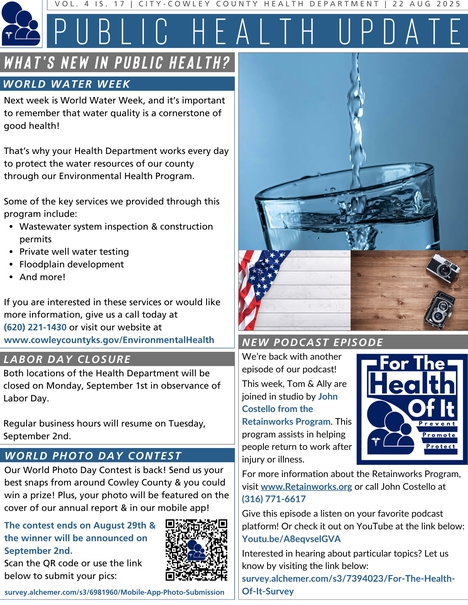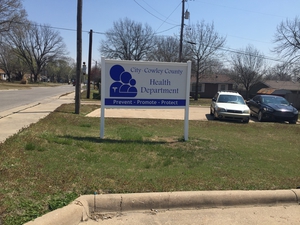Public Health

Welcome to the City-Cowley County Health Department

We are excited to announce the debut of our new podcast - For The Health Of It: Cowley County. Hosted by our Public Health Officer, Tom Langer, this podcast features discussions about important public health topics and how they affect the health of the Cowley County community.
Our podcast is now available on YouTube!
Like and Subscribe so you don't miss any new episodes!
Check out the latest episode in the embedded video below:
Click here to access a full playlist of every episode!
For The Health Of It is also available on all major podcast platforms! Use the buttons below to access our podcast on your preferred platform.
Click here to access our podcast website!
Click here to let us know what topics you're interested in learning about!
Health Department Public Health Update
The Public Health Update is the City-Cowley County Health Department's twice-monthly publication focusing on the latest in public health. Each issue will be distributed to the community via social media and this website. With this format, we seek to better engage the community and bring into focus the many services that we provide. The updates will cover many topics including local and public health news, Health Department program highlights, upcoming events, and more!
Click the button below to access our easy-to-use presentation mode:
Our next issue will be released on September 5th.
Click the image below for a higher resolution version of the latest Public Health Update:
Click the link below to access a pdf version:
Public Health Update Vol. 4 Is. 17 - August 22, 2025
For previous issues of the Public Health Update, click the link below for our archive page:

Download our mobile app from the Google Play & Apple Store today!
If you are looking for information on a specific topic, please use the navigational pages on the left. Can't find what you're looking for? Call us directly or visit us at our offices using the information below.
We have two offices for your convenience located in Winfield and Arkansas City.

City-Cowley County Health Department
320 E 9th Ave. Suite B
Winfield, KS 67156
620-221-1430
City-Cowley County Health Department
115 E. Radio Lane
Arkansas City, KS 67005
620-442-3260












